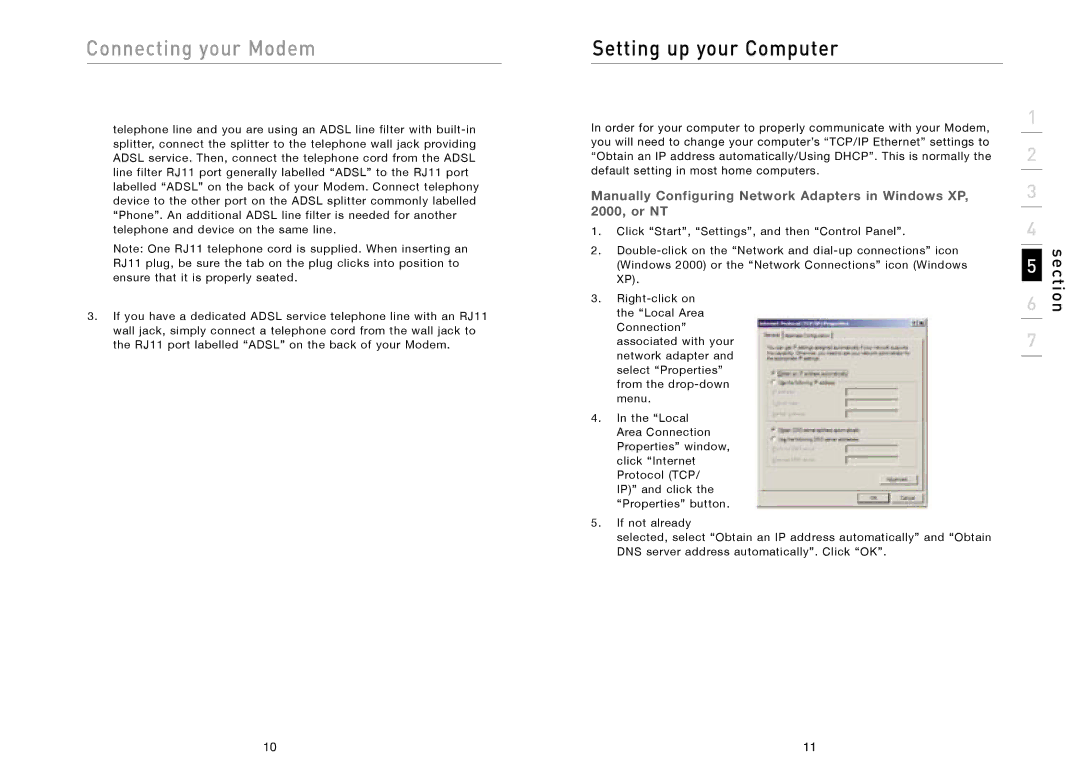
Connecting your Modem
telephone line and you are using an ADSL line filter with
Note: One RJ11 telephone cord is supplied. When inserting an RJ11 plug, be sure the tab on the plug clicks into position to ensure that it is properly seated.
3.If you have a dedicated ADSL service telephone line with an RJ11 wall jack, simply connect a telephone cord from the wall jack to the RJ11 port labelled “ADSL” on the back of your Modem.
Setting up your Computer
In order for your computer to properly communicate with your Modem, you will need to change your computer’s “TCP/IP Ethernet” settings to “Obtain an IP address automatically/Using DHCP”. This is normally the default setting in most home computers.
Manually Configuring Network Adapters in Windows XP, 2000, or NT
1.Click “Start”, “Settings”, and then “Control Panel”.
2.
3.
4.In the “Local Area Connection Properties” window, click “Internet Protocol (TCP/ IP)” and click the “Properties” button.
5.If not already
selected, select “Obtain an IP address automatically” and “Obtain DNS server address automatically”. Click “OK”.
1
2
3
4
5
6
7
section
10 | 11 |
